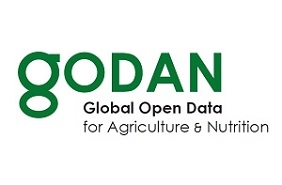GODAN, open data for agriculture and nutrition in the world
Fecha de la noticia: 26-05-2016

The second Sustainable Development Goal stands for the end of hunger, food security, improved nutrition and the promotion of sustainable agriculture. However, facing these challenges requires data that can range from transparency in agricultural agreements to information on food safety. Open data plays an essential role both in developing solutions to current challenges and empowering citizens, who, thanks to this information, can make better decisions.
In this context, GODAN, the Global Open Data for Agriculture and Nutrition initiative, was launched at the 2013 OGP Global Summit; bringing together stakeholders from all sectors to collaborate on making agriculture and nutrition data available. Given the central role of agriculture and nutrition in many citizens lives, it is only natural that OGP Action Plans should include key commitments in this area:
● Making existing land tenure and landholding registries public;
● Disclosing contracts signed with extractive companies - including for agricultural land deals;
● Publishing data on commercial fishing licences, catch quotas and subsidies paid to the fisheries sector.
Currently, GODAN is a rapidly growing network of over 277 partners from government, international and private sector organisations all committed to organize and coordinate activities that promote the potential of open data in agriculture and nutrition. Using open data to monitor the implementation of key food security; adopting common open data standards for publication of information or releasing government held food product information as open data are some of the actions in which the entity is working.
One of the international initiatives that meets the objectives of GODAN and OGP is landmatrix.org, a project that uses data on land deals to promote greater transparency and accountability of large scale agricultural investments and development projects. As a data collection and visualisation tool, it is a powerful platform for citizens, researchers and public employees to conduct analysis and monitor land use over time.
One of the project within GODAN program is the International Livestock Research Institute, based in Kenya and Ethiopia; which offers farmers additional mechanisms to protect against weather risks and losses associated with them. Thus, thanks to the re-use of open data from satellites, it is possible to study the state of crops and the availability of pastures in the drier areas of East Africa.
Another example is the BROSDI project, an initiative that works with poor communities in Uganda to help farmers with economic funds and advice so they can re-use information productively and be responsible for their own development. This network has 300 breeders who meet regularly with the organization to monitor its progress and discuss about possible solutions to community problems. All information is collected and transferred to the National Agricultural Research Organization which processes and transforms data into value, sending it back to BROSDI in order to make communities re-use it.
Thanks to the support of the Open Government Partnership, it has been possible the implementation of this voluntary association, which has driven multiple activities dedicated to release the potential of open data in the agricultural industry worldwide. In addition, it has ensured that all partner agencies work following the same guidelines and principles, seeking to jointly promote new programs, best practices and lessons to improve the conditions of the poorest rural areas through the re-use of open data.











